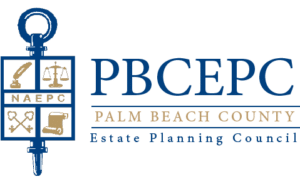
More than 334,000 scams and financial abuse cases targeting the elderly are reported to authorities every year with an estimated $6.3 billion in damages. However, it is estimated that only 1 in 44 people ever get to the point of reporting the exploitation or abuse. The number of cases and damages are, therefore, exponentially higher. Given that Florida has the highest percentage of senior citizens , where many reside far away from the watchful eyes of children and other relatives, it is also home to one of the highest estimated number of elder fraud reports.
What is financial exploitation and what is the profile of a typical perpetrator?
Elder financial exploitation is the illegal, unauthorized, or improper use of an older person’s (60 years or older) property or financial assets. They may be susceptible to exploitation due to isolation, cognitive decline, physical disability, health problems, or the recent loss of a partner, family member or friend. Vulnerable adult exploitation is the illegal, unauthorized, or improper use of property or financial assets of a person 18 years of age or older who lacks enough understanding or capacity to make or communicate responsible decisions concerning themselves or their affairs. They may also be unable to perform or obtain services necessary for their financial welfare.
Perpetrators typically fall into three categories – familiar to the victim, a professional or a stranger. They can include family members, caregivers, scam artists, financial advisers, service providers and fiduciaries (agents under a power of attorney and guardians of property). Exploitation can occur from unknown sources such as telemarketing/phone, email, those claiming to be from the IRS or Social Security or even a knock on the door from a vendor. Importantly, the exploitation, does most often emanate from someone who is known to the victim. Older persons are targeted as they typically have accumulated assets, equity in their homes and a regular source of income.
The victim consequences are significant financial losses (life savings), loss of trust, inability to provide for long term care needs, depression, feelings of guilt and shame (a contributing reason why there is a high number of unreported cases) and even death.
What are some of the cues and signs that exploitation may be occurring?
There are two types of signs, behavioral and transactional. Behavioral red flags include: An individual who demonstrates interest in the victim and is reluctant to leave a victim’s side, those historically close to the victim are unable to speak directly with the victim, a new caretaker, relative, or friend suddenly begins conducting financial transactions on behalf of the victim without proper documentation, the victim transitions away from existing relationships and toward new associations with other “friends” or strangers, the victim appears to neglect or experiences a decline in appearance, grooming, or hygiene, they may lack knowledge about his or her financial status, or may show a sudden reluctance to discuss financial matters. Transactional red flags may include frequent large cash withdrawals, sudden non-sufficient fund activity, disregard for penalties, inconsistent debit transactions, excessive numbers of payments or payments of large sums and debit transactions that are inconsistent for the older adult.
What can be done to protect an individual from exploitation?
The elderly and family caregivers for the vulnerable, should start the conversation as to how finances are to be handled if circumstances change and who will take over those responsibilities should the current party be unable to do so. Ensure those who are trusted, remain in close contact so as to pay attention to changes in behavior or transactions. Never provide identifying information (social security number, date of birth, financial account information, etc…) to a stranger, via email, phone or in person to an unknown party. Ensure there is a plan in place, whether you have family or are alone, comprised of a team of professionals surrounding the elderly or vulnerable person. That team may include a trust and estate attorney, certified public accountant, a credentialed and reputable fiduciary financial team, and a certified Care Manager, also known as an Aging Life Care Professional®. (The organization Aging Life Care Association at aginglifecare.org is a good resource to find a certified Aging Life Care Professional.) Each of these parties, while charged with independent roles and responsibilities work in concert with one another. These professionals provide a check and balance, even amongst one another, and are often the first to notice the signs of decline, changes in behavior, etc…
What resources are available if you believe you or someone you care for is the victim of exploitation?*
There are situations that require reporting and public resources are available within the State of Florida including the Department of Children and Family Services Adult Protective Services can be reached via 1-800-96-ABUSE (1-800-962-2873) or
https://reportabuse.dcf.state.fl.us/Adult/AdultForm.aspx. Ideally, however, the victim’s trusted team is the first line of defense toward avoidance and resolution. This approach may also provide for privacy and discrete handling of the matter on behalf of the victim. Many times, these parties work together to mitigate the issues, remove a bad actor(s) and/or solve for a favorable resolution.
*It should be noted that any form of immediate danger should always be reported via 911.
Darlene A. Dzuba is a Vice President and Wealth Trust Advisor in the Palm Beach office of U.S Bank Private Wealth Management. In her role, she serves its Florida and New York markets. Ms. Dzuba has over 20 years of experience in the wealth management industry and is a Certified Trust and Fiduciary Advisor.
Debra Moler RN, BSN, CMC is President of RN Life Care Advocates servicing clients in Palm Beach and Martin counties. She is a Nationally Certified Care Manager and Advanced Professional Member of the Aging Life Care Association.
